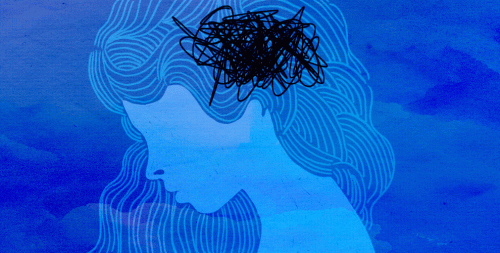Rage and Depression: How Are They Related?

Rage and depression are two realities that usually go hand in hand. Stereotypes tell us that a person who’s depressed is listless and more and or less trapped in their feelings of misfortune. However, that’s not entirely true. That’s only one side of depression. In addition to this manifestation, depression can manifest itself differently depending on each person’s temperament.
Studies indicate that people with a tendency to become angry are also more vulnerable to depression. In fact, they’ve clearly shown a connection between depression and those who show explosive rage.
The states of rage and depression usually unfold from a common circumstance: frustration. This, in turn, comes from a wish or goal that hasn’t been achieved. More than not getting what they wanted, the thing that starts them down this path is a lack of resources to process their frustration. It’s almost always accompanied by a poor opinion of themselves and a lack of nurturing in their past.

Rage, depression, and the unconscious
From the point of view of the unconscious, rage and depression make up part of the same process. You could almost say they’re the same. What differentiates one from the other is the object they’re directed at. While rage goes after something external, depression is inward.
Rage and depression go hand in hand in a way that’s as perverse as it is harmonic: the origin is the same, but the expression is different. With rage, especially when there are explosively aggressive attacks, you can see destructive behavior toward others. People who suffer from it say offensive, minimizing, or degrading things to others.
The same thing happens with depression. However, verbal violence is directed toward themselves. The violence is just as destructive as when it’s thrown at others. And sometimes physical aggression accompanies it. For example, some behaviors put people’s bodies in danger.

A vicious cycle
The chain of events that leads to depression usually starts with an ungranted desire. You want something, but you don’t get it. Maybe it doesn’t bother you at first. But then it repeats a few times, this situation of wanting something and not getting it, which leads to deeper frustration.
At the same time, this shows that the confidence you have in yourself and your self-esteem is low. If you don’t express, it, it accumulates and oppresses you. It might even end up hurting or breaking you.
Once you get to this point, you might feel constant animosity toward the world. Depending on your temperament, that annoyance will express itself either as rejection or denial at involving yourself in what’s around you. Or the opposite might happen: you might develop a tendency to interact negatively with what’s around you as a result of your rejection. Both of these manifestations are normal.
Listen and own your emotions
Rage and depression are two destructive states. They’re destructive for those who experience them and for those around them. They often lead to unnecessary conflicts and intense emotional situations that push others away. At the same time, guilt and isolation worsen frustration, rage, and depression.
The way to get out of this is both simple and complex. You must learn to listen to the emotions inside of you and give them the importance they deserve. Not recognizing those feelings and refusing to give them a voice will make them turn oppressive.

If you feel that sadness or rage have turned you into a shadow, they won’t go away, or that you simply can’t get rid of them, you probably need to talk about what’s happening. Hopefully a professional can help you reinterpret what’s happening in your internal world. They can help you figure out why not getting what you want is blocking you. If you don’t, rage and depression will end up calling the shots in your life.
All cited sources were thoroughly reviewed by our team to ensure their quality, reliability, currency, and validity. The bibliography of this article was considered reliable and of academic or scientific accuracy.
- Salguero Noguera, J. M., & Iruarrizaga Díez, I. (2006). Relaciones entre inteligencia emocional percibida y emocionalidad negativa: ansiedad, ira y tristeza/depresión. Ansiedad y estrés, 12(2-3), 207-221.
This text is provided for informational purposes only and does not replace consultation with a professional. If in doubt, consult your specialist.








